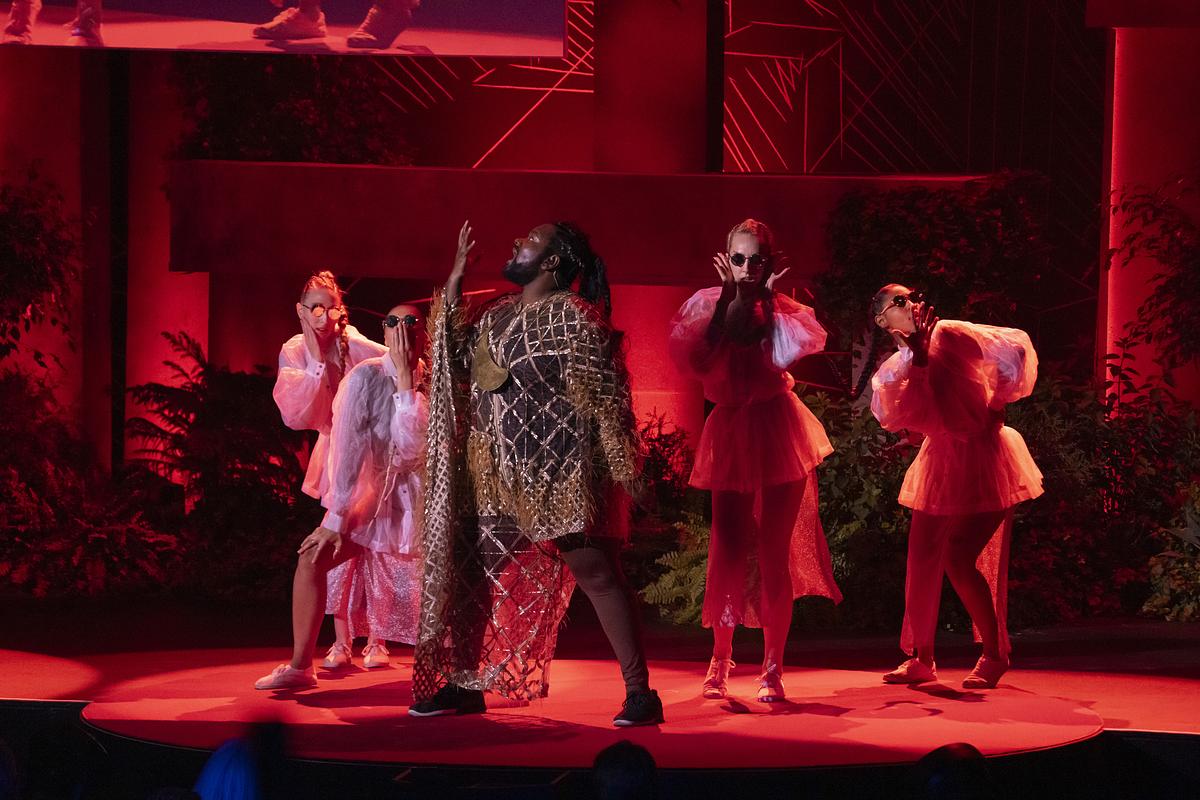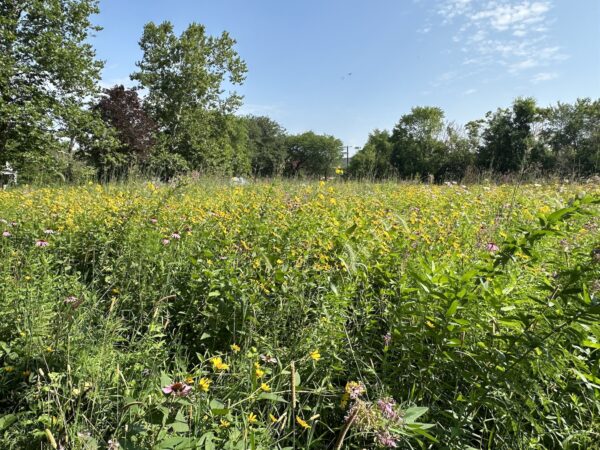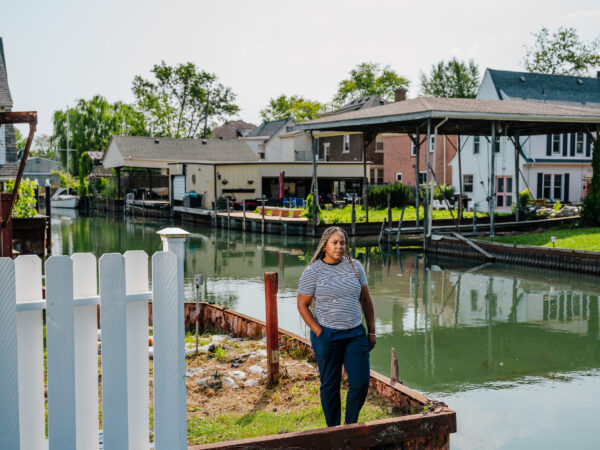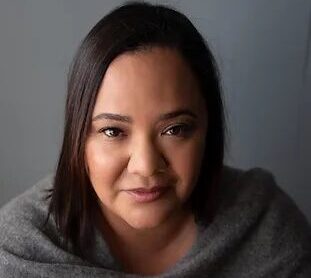
Tunde Olaniran is a musician and multidisciplinary artist from Flint. Last year, their first exhibition premiered at Cranbrook Art Museum, featuring a short horror film — Made a Universe — inspired by their life growing up in Flint.
They were asked to perform one of their latest works for the TED Countdown Summit at the Fillmore Detroit on Thursday, July 13. Olaniran took to the stage with four backup dancers to retell the story of the Yuruba creation myth.
They sat down with us later that week to talk about why that story works so well when exploring themes of place and the environment, and what role art has in the climate crisis.
How do you see place or location functioning in your work?
Olaniran: My mother’s family is from Flint. She grew up and kind of instilled in me, I would almost say a revolutionary kind of perspective. You know, Flint is a working class city, but it’s also a city where a lot of revolutionary work happened. It was the first sit-down strike in the country. I see myself as a working class artist, and I think what I come to understand is that a lot of artists in places like Flint and Detroit, especially black and brown artists, we create and generate a tremendous amount of culture but don’t always have access to the resources that that culture, the wealth that that kind of culture generates. So for me, I’m always interested in what is happening in places like Flint, and how can we redirect resources back to our own communities, to artists like me, to people that look like me, people that raised me?
What role do you see art playing in climate change?
Olaniran: I am not a climate scientist. I’m not anything like that. I met some incredibly intelligent and brilliant people at TED, but part of me knows that anything I’ve learned about climate justice has been from black and indigenous artists who also work in neighborhoods and communities to create their art. It’s a circular process that responds to the changes in our environment and the needs of people in our communities.
I feel like you can’t really have any solutions to the climate crisis, without the human response that can only come through reflection on our lives and what is important to us. I think artists are a great mirror for that. Artists can gather energy for us to even consider: why are we alive? What is the point of saving ourselves? Where do our sources of joy come from? Where does our connection come from? I think art reminds us of that.
I watched Al Gore and it was a really compelling talk. After him, the Detroit Youth Choir performed, and you thought: oh yeah, this is why we’re alive, to feel joyful. This is why we want to get to net zero emissions, so we can continue to feel things that this choir’s making us feel.
You’ve said in a previous interview that anything or any experience can be a portal. Within the lens of environmental justice, what could Detroit or Flint be portals for?
Olaniran: When I think about the climate crisis, it’s something that seems like a really big problem and it feels overwhelming. But black and indigenous communities, to me, have shown that the solutions are going to come from us. So if you’re looking for a solution to this issue, a solution to this crisis, you cannot do it in a sustainable and just way without us.
Well, let me put it this way, when I worked with Yo-Yo Ma on a song called Doorway, that song came from a conversation that I had with him about his life. In this part of his career, this part of his life, doors always open for him. He realized that he wanted doors to open for everyone, in every kind of way. Which meant opportunity, which meant access to resources, which meant safety…everything. And so we kind of created this symbol and created this idea of if you could open a door and make sure it stayed open, what would it look like going through it? I feel like if you’re looking at a door and on the other side of it is a solution to the climate crisis? I think the only people that can really open that door for you are black and indigenous people, because we are going to create those solutions. We’re going to create that portal for us to go through.
What went into preparing for your performance at TED? What were you hoping the audience would take away?
Olaniran: I wasn’t really sure why TED asked me to perform until I got here. I have a collection of songs that I’m getting ready to release from an album called Chaotic Good, and I wanted to create a short story narrative that is inspired by my life in Flint, but also inspired by cultural things. So I kind of looked around to think of what could be inspiring: my father being Nigeria, my family being Yoruba, I looked to Yoruba creation myths. Something about the description of creation through chaos, and how even humans were formed. It was so compelling and I thought, let me apply that to this performance. And by the end of it, trying to remind the audience that heaven is actually not some faraway thing. it is where we are now, and we can make heaven for ourselves on this earth.
In the creation myth, Obatala reaches into the water, draws mud up, and we’re made out of mud. I just think, wow, the story is so chaotic, it’s so compelling. It’s kind of dark and mysterious. And I think it’s not that there’s not always a clear path, but you really can, in the end, create a heaven for yourself here. And so I thought, there is nowhere for us to escape to. There is nothing that we can do after this, we have to make our earth and our home heaven now.
What do you think about TED having their climate summit in Detroit?
Olaniran: I was asking some folks at TED, you know, what was it like being here. What was the reason for coming to Detroit? I really think that, well, I hope that they understand and realize the people that are most affected by the climate crisis and are the most vulnerable, are also the people that are going to need to be at the forefront and be innovators for sustainable solutions to the climate crisis. And, again, you cannot design a fix for something without having the people that are most impacted directly in the conversation and driving the conversation. So I’m hoping that was a big reason TED came here, and I hope that they continue to support the work that’s happening in Detroit.
Coming away from this week, or just thinking about environmental things, what are you feeling either optimistic about or cautiously optimistic about?
Olaniran: Thinking about the climate crisis and again, being someone that feels like I don’t have a ton of expertise, and just trying to listen to folks, trying to listen to people as they talked. Again, Al Gore’s talk, I wasn’t sure what to expect, but something he said really resonated with me; that reaching net zero would actually halt global earth temperatures when it’s reached. It just felt like, wow, it’s achievable.
I think people have a sense of: it’s hopeless. I never felt hopeless, but it gave me a kind of scientific, grounded, response and a grounded kind of feeling to hold on to. I also think that he made it very clear, and a lot of the speakers made it very clear, these are the folks that we are going to have to put pressure on as a community if we’re going to stop this crisis.
I think individual choices are important, but to me, the most compelling talks at TED really spoke to the larger structures and saying: hey, we need to directly confront and dismantle the fossil fuel industries stranglehold on global politics and the global economy. If we’re going to move the needle. Recycling is great, but there are bigger systemic issues. And so what I took from that too, is thinking: okay, what does this mean for how I talk to my neighbors? What does this mean for what conversations we have?
I’m trying to kind of get to know my neighbors better. Thinking you can march, you can attend conferences, but if the people that you see everyday are not aligning in our power, we’re not going to move the needle. So, I’m leaving this conference, I don’t know if it’s hopeful, but I feel galvanized and energized to talk to my neighbors more. Think about whatever our political agenda is, and how do we exert our power and stretch our own muscles locally and on a statewide level?
Catch more news at Great Lakes Now:
TED Countdown: BlocPower CEO Donnel Baird on greening America’s buildings, improving communities
Featured image: Tunde Olaniran performs at at TED Countdown Summit. July 11-14, 2023, Detroit, MI. Photo: Nick Hagen / TED




